I thought today’s mail would bring resolution. It did not–keep that in mind because this is a bit of a long journey to nowhere new.
You might recall that I wrote about a neat 1932 RKO mystery film called The Phantom of Crestwood a few weeks ago. The character played by Ricardo Cortez in the movie was a shady fellow who spent the first half of the movie giving his name as Farnesbarnes.
There was no doubt Cortez was lying when he provided this as his name. It was tongue-in-cheek with a wink the entire way. Sure enough Cortez reveals himself as the far less exciting Gary Curtis later in the film.
But early on Cortez wears his perpetually smarmy smile and says the name with such exaggerated long a’s that even the other characters know he’s playing with them as he either claims Farnesbarnes as his name or as the name of the person he’s seeking out.
The first time Cortez goes with it as his name the character he speaking to, a suspicious detective, asks him, “How do you spell it?”
“Same way you pronounce it,” Cortez replies.
Being a Ricardo Cortez fan I found this absolutely hilarious. He wore his usual grin, a toothy smirk, but the addition of this completely nonsensical name to one of his always overconfident characters made it feel like he was flipping off the world with a bit of extra enthusiasm this time around.If anything I probably paid more attention to Farnesbarnes in my coverage of The Phantom of Crestwood than I really should have.
But after I wrote about The Phantom of Crestwood I forgot all about Farnesbarnes.
For a couple of days.
A few nights later I pressed play on a marathon of Richard Dix movies that TCM had recently aired. I started to nod off during my third feature, The Public Defender (1931).
The Public Defender features Boris Karloff, just a few months before Frankenstein, as a Dix underling.
The Dix character is involved with a woman played by Shirley Grey, whose father has lost the family fortune. The contents of their home are being auctioned and all of our characters are in attendance of the sale.
During the auction Dix sits with Grey to discover which of the auctioned items she can’t live without. Karloff is seated with the bidders. Dix flicks his cigarette ash as a signal to Karloff to bid on those goods that the Grey character would especially like to keep. Swell guy that he is, Dix later surprises Grey with a present of these possessions she had thought lost.
Anyway, after Karloff wins his first bid the auctioneer asks him his name:
“Farnesbarnes,” says Karloff.
I was more asleep than awake the first time I heard this.
Proving myself as geeky in my unconscious as in my waking hours I shot straight up and fumbled for the remote. I’m not kidding.
What had been humorous in The Phantom of Crestwood just a couple of days earlier had suddenly become very intriguing at a very late hour during The Public Defender.
I rewound the scene:
“Sold for twenty five dollars to Mr.—”
“Farnesbarnes,” says Karloff, stretching it out as well as Cortez had in the other movie.
The auctioneer looks a bit stupefied by the name. He takes a long pause before repeating in a somewhat stern voice, “Mr. Farnesbarnes, twenty five dollars.”
The next lot comes up and Dix signals Karloff again.
“Sold to Mr. Barnesfarnes—”
Boris interrupts to correct the auctioneer: “Farnesbarnes,” he says, removing his spectacles for emphasis as he speaks.
“Farnesbarnes,” the auctioneer repeats as a few of the auction attendees cackle with laughter.
All right, what gives?
My first thought was that I must have been overlooking some obvious reference and likely had made a complete fool out of myself by writing of Farnesbarnes with such wonder in my Phantom of Crestwood post.
Almost, but no.
But I continued to doubt myself until today’s mail.
That night, the night that The Public Defender startled me from my sleep, was over. It was a little before 4 am and I was at my desk digging online for answers.
I expected to find a simple answer within a few minutes and have this silly post up in time to email to subscribers by seven that morning.
Uh uh.
Google’s first result turned out to be the most helpful. Or at least it would have been most helpful had I been satisfied with today’s mail. But I am not.
On the Guardian’s website, HERE, was a page labeled “Semantic Enigmas.” I’ll say so.
 A reader had written with this question:
A reader had written with this question:
Who was Charlie Farnes-Barnes? The name was in common use (quite) a few years ago as a substitute for “what’s his name” or “Fred Fernackapan”. I note its use by your correspondent Derek Brown twice in the last three years.
Ah, Charlie, I’ve got a first name. And I’m with you, who was he?
Unfortunately my next two leads were links to the aforementioned Derek Brown articles. They were of no help. He tossed about the Farnesbarnes name as if we all knew exactly what he meant.
The most helpful answer made reference to a 1940’s BBC radio series, Much-Binding-in-the-Marsh, but alas, as the most recent comment on the page (It wasn’t there a few weeks ago and strangely it’s from a fellow Long Islander. Not me, I swear!) points out, that program didn’t come around until years after our pair of movies.
But I had nothing else to go on so I did look into the radio series just to make sure it didn’t have earlier origins. Much-Binding-in-the-Marsh aired from 1944-54 and the character called Farnsbarns was kind of an in-joke in himself as he was referred to by other characters, but never actually heard to speak.
A phantom of sorts.
A British television series, actually titled The Charlie Farnsbarns Show, aired on ITV for a year in 1956, but not only is that well after our American references, it is acknowledged as a spin-off of sorts from Much-Binding-in-the-Marsh.And so I Googled on, also hitting all of my favorite newspaper archives as I went. The sun rose.
I searched for variations of Charlie Farnesbarnes from simple old Farnesbarnes to “Farnes Barnes” split into two separate words to the same, hyphenated—”Farnes-Barnes”—like so, to both “Farnsbarns” and “Farns Barns” dropping both e’s and on to variations including an e on one half or the other.
I can tell you there was a racehorse named Charlie Farnsbarns active from 2008-09, but since I don’t know anything about horses beyond my brief annual interest in the Triple Crown races I really couldn’t tell you if his 133.25 rating is good, great or terrible.
I felt foolish all over again as I bumped into several—-or perhaps all the same—-Nigerian scammers using Farnesbarnes as their signature.
A few folks use a variation of Farnsbarns as their handle on social media sites. Perhaps they’re Nigerian?
At any rate I’ve convinced myself that even the Nigerian scammers have adapted the name from the ‘40s BBC radio series because other than these two early 1930s American made movies I could find no reference predating Much-Binding-in-the-Marsh.
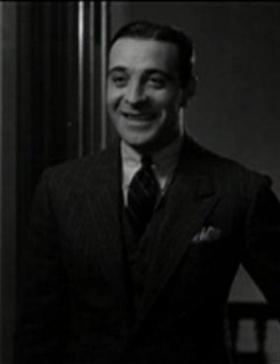
This guy just doesn’t stop! This isn’t even the same movie-Ricardo Cortez in Flesh (Click pic for article)
I followed the other bit of advice on the Guardian page:
See Nigel Rees, “Phrases and Sayings”, rev. ed., Bloomsbury Reference, 1997.
Of course, any such Farnesbarnes entry was not available to be previewed on the internet. I couldn’t even pay to see it instantly anywhere and I would have paid a pretty price that morning.
But my only option was to pay much less and wait.
I got the book for only about a buck plus shipping, but I swear I didn’t go for the absolute cheapest copy of the book I could find. I was prepared to go to $20 if Amazon had any available with 2-day Amazon Prime shipping as an option–I probably would have even gone a little higher if I had to.
Without any copies being offered via Amazon Prime I went for the nearest option. Said to be shipping from New York.
I have ordered and received packages from Britain in the time it took for my copy of Phrases and Sayings to arrive. The seller was in New York, yes, but he didn’t mention that the book was being dropshipped from Britain.
Would “Farnesbarnes” even be an entry? I ordered this thing blind off a vague reference by a random somebody made on a website. We’ll see!
I tore the package open Friday afternoon and thumbed directly to the F entries, stopping in the appropriate place to see:
Farnsbarns. – See CHARLIE.
What a tease!
Deep breath. Oh man, I bet this page is going to be torn out. This is never going to end!
No, there it is:
Charlie Farnsbarns. – A twit whose name one can’t remember. Noting that this moderately well-known expression had escaped Eric Partridge and his reviser, Paul Beale (Note: Rees lists both men in his acknowledgments. Beale revised the DICTIONARY OF SLANG AND UNCONVENTIONAL ENGLISH and DICTIONARY OF CATCH PHRASES, both originally by Partridge), I mentioned it to Beale in November 1985, suggesting that it sounded military, even pre-Second World War, though I had heard the comedian Ronnie Barker use it in a monologue quite recently. Beale came back with: ‘Charlie Farnsbarns was a very popular equivalent of e.g. “Mrs. Thing” or “old Ooja”, I.e. “Old whatsisname”. Much play was made with the name in MUCH BINDING IN THE MARSH, but whether murdoch and horne actually invented it, or whether they borrowed it “out of the air”, I’m afraid I don’t know, they would mention especially, I remember, a magnificent motorcar called a “farnsbarns special” or something like, say, a “farnsbarns straight eight”. This was in the period, roughly, 1945-50, while I was at school – I recall a very jolly aunt of mine who was vastly amused by the name and used it a lot.’
CHARLIE is a name given to an ordinary bloke; ‘Farnsbarns’ has the numbing assonance needed to describe a bit of a nonentity. I suspect the phrase came out of the services (probably RAF) in the Second World War. Denis Gifford, incidentally, in The Golden Age of Radio (1985), says the name was used by ‘Sam Costa in Merry-Go-Round (1946)’ – but the RAF edition of that show was the forerunner of MUCH BINDING IN THE MARSH.
This is defeat. For now.
Nigel Rees, an English writer and television personality, has written several books cataloging obscure word and phrase origins such as Charlie Farnsbarns. Unfortunately, he gives us nothing we didn’t already have.
Though I do have to admire him for doing so in as long-winded a fashion as I have done here myself!
My best guess is that any current popular usage, from innocent Twitter handles to nefarious Nigerian requests for wire transfers, derives from the 1940s BBC radio program, Much-Binding-in-the-Marsh.
It’s a reference I never have and probably never will become directly acquainted with.But we’ve got it much earlier in two different movies, both RKO films: The Public Defender (1931) and The Phantom of Crestwood (1932).
Is there anybody out there with an earlier Farnesbarnes origin story? Something to pre-date our 1931 Hollywood, USA reference?
Calling Mr. Rees, perhaps, with an updated entry to my 1997 Revised Edition of Phrases and Sayings?
You can bet I’ll keep my eyes open but if you’ve anything to add, even just a lead, please comment below.

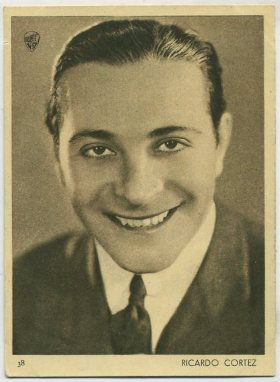



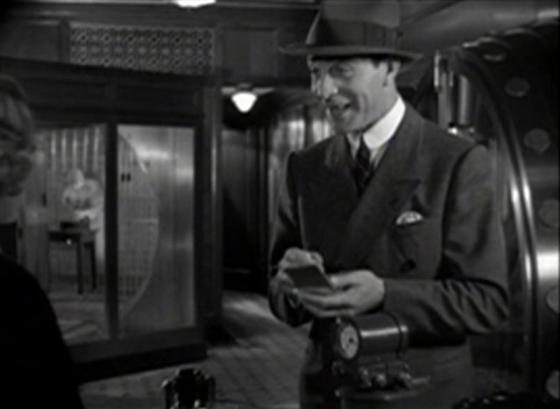
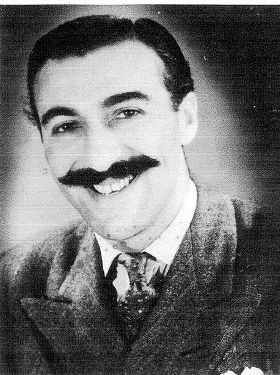
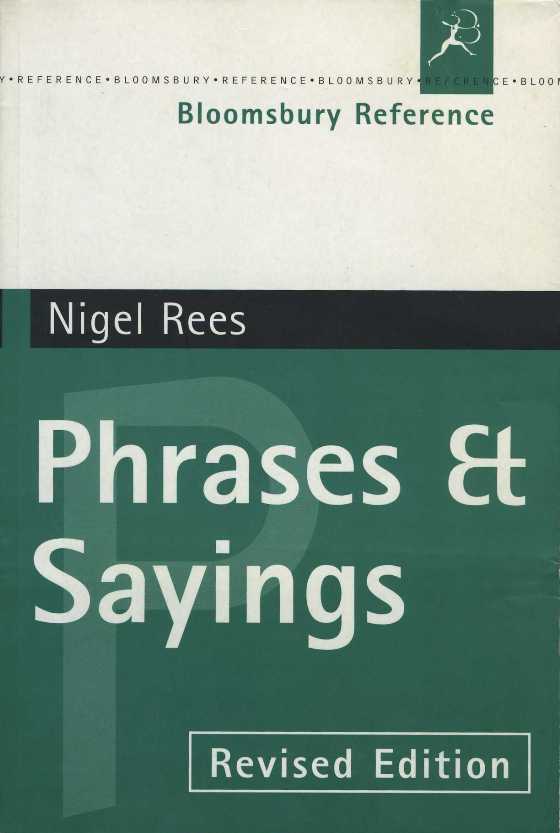
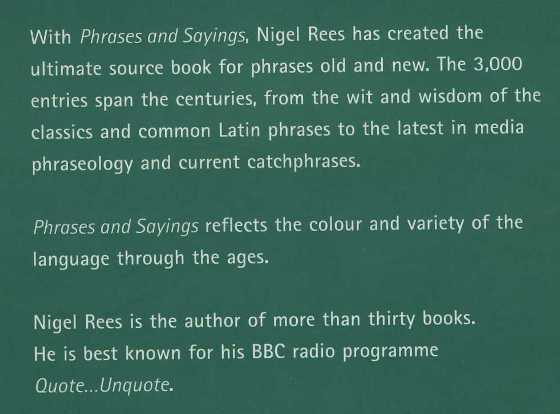
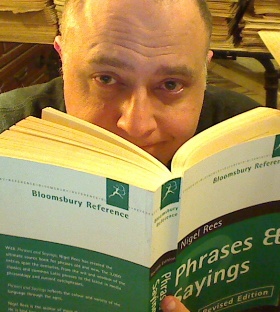

This won’t provide any elucidation of the matter, which I have for years thought to be an RKO inside joke. Well, I see there’s more to it than that, now!
In any case, make it *three* RKO Radio Pictures from 1930-32 in which Mr. Farnesbarnes is mentioned. The first was in the Richard Dix vehicle, Shooting Straight, released in mid-1930. The film aired on AMC circa 1991. I’m not sure if it’s ever aired on TCM. It deserves a look as the film that comes right before Cimarron in the Dix filmography, and as a dramatic shift from the two stage comedies that began his Radio Pictures career in 1929-30.
-Jon
Jon,
Great timing — I am getting ready to post a very lengthy piece about Dix in the next 24 hours or so and had already planned a link back to this post when I mention Shooting Straight. I won’t do much more than mention the movie in this coming post, but will be including a brief look at three of his career defining roles in The Vanishing American, Cimarron and The Ghost Ship, plus my personal favorite, Ace of Aces.
At some point I’ll be sure to update this post with the Shooting Straight info. That will give me an excuse to watch it yet again! Worthwhile in its own right, though I love just about everything Dix did during that those first few years at RKO.
Thanks again, Cliff
Cliff,
My apologies that the late hour at which I made that posting evidently caused me to be remiss in expressing my admiration for all that you’re accomplishing. I happened upon your site last evening, and it’s wonderful to see such in-depth analysis of classic films, and an abundance of details about everything surrounding the films and actors.
Richard Dix has been a favorite of mine since I was 12. The first film of his that I saw was the lowly “Yellow Dust” from 1936 (also Leila Hyams’ last film). He’s the first “Golden Era” actor whose films I watched in any great number(thanks to AMC) and I’ve always been intrigued by his career path, which, thankfully is not tragic as John Gilbert’s was in regard to talkies, and yet, neither did it allow him to stay in some sort of coveted “Top Ten” as was the case for Gary Cooper and Ronald Colman after 1929. Still, the longevity and dependability is impressive and unique amongst silent era stars who succeeded in talkies. Am I right? 50+ talkies and still going strong in starring roles up until 1947 is impressive! Somehow, though, I feel as though his career lost a bit of momentum after he left Paramount in 1929 after three so-so talkies. I can’t blame them for doing more for him, as everything was up in the air at that point, but, Dix must have felt that they weren’t trying hard enough if he jumped ship and went over to Radio with William LeBaron. Did you know that Dix was supposed to star in the Virginian? I’ve often weighed the pros and cons of such a performance in that role versus what Gary Cooper did with it.
I could write so much more, but I will try to spread out my Richard Dix obsession amongst the other entries that you’ve made. They might be a bit more lengthy than some of the other replies that I’ve read, but I’ll try not to make them as long as War and Peace, I promise.
It’s nice to have someone with which to dialogue; keep up the splendid work, sir!
-Jon
Hi Jon,
Still at work here, hoping to have this in subscriber’s inboxes by tomorrow morning though.
Given his rather mundane off-screen life–and I mean that as a compliment–most of the post will focus on his screen work. I agree, a very interesting career and one that I argue should be reappraised as a sum of its parts rather than throwing a spotlight on any single title. I really think he peaked with the public after The Vanishing American, had his fame rejuvenated though his legacy ultimately tarnished by Cimarron, and is best known today through The Ghost Ship. And I don’t believe any of those titles truly show him at his best. But I should save some of this for the coming post!
This is going to be longer than most of what I post (which is typically pretty long!), so I’m spending today doing some final editing which is a bit more laborious than usual due to the length. I’m trying to keep it somewhat basic for those just coming to Dix, but with some detail mixed in as well.
I really enjoyed Dan Van Neste’s biography of Dix in his Whistler book, so I’m trying to restrain myself from relying on it too much to create something more complementary to the heavy-lifting he did in sculpting out a traditional biography.
Thanks much for the kind words, glad you’re enjoying some of the old posts. Really hoping you like the coming one as well!
Cliff
Interesting to see your RAF reference. My grandfather would frequently say Charlie Farnsbarns, usually to point the blame when something happened and no one knew who did it.
He served in the RAF during WW2, as a Navigator on the Lancaster bombers, so the reference makes sense to me
A professor of mine at university regularly used the expression “What a farnesbarnes!” to mean “What a kerfuffle/commotion/messy situation!”. This was back in 1999, amd he would have been about 60 then. He grew up in Bristol. I recall having found no mention of this idiom in any source at the time, amd even today, it’s conspicuously absent (with his meaning) from all slang/idiom resources I’ve checked. Does anyone know where this is documented?
Sometimes a name catches on as a cultural dummy name. The TV show Laugh-in used the last name “Foonman” from time to time, and I remember it having a bit of a vogue; today you see people use “Chuck U. Farley” in a similar way.
But there’s an obvious possible inspiration for Farnesbarnes in World War I– a prominent cartoonist of wartime humor was Bruce Bairnsfather, creator of Ole Bill, a walrus-mustached symbol of the grizzled vet trying to get by.
I would note that the MAD cartoonist Don Martin gave a similar name to many characters—Fonebone.
Anyway, fascinating hunt for the origins of something ephemeral…
My father (who is now 90) used to use the phrase a lot, usually to describe a non-entity or anonymous stranger. This was throughout the ’60s and ’70s when I was a child.
I don’t know why I just thought of it, but my efforts to discover its etymology led me here. My guess is he picked it up from the radio show, which would have been airing when he was 10 or 11.